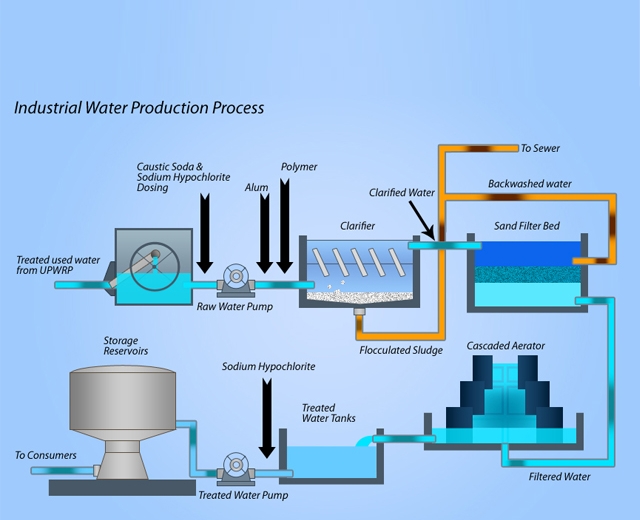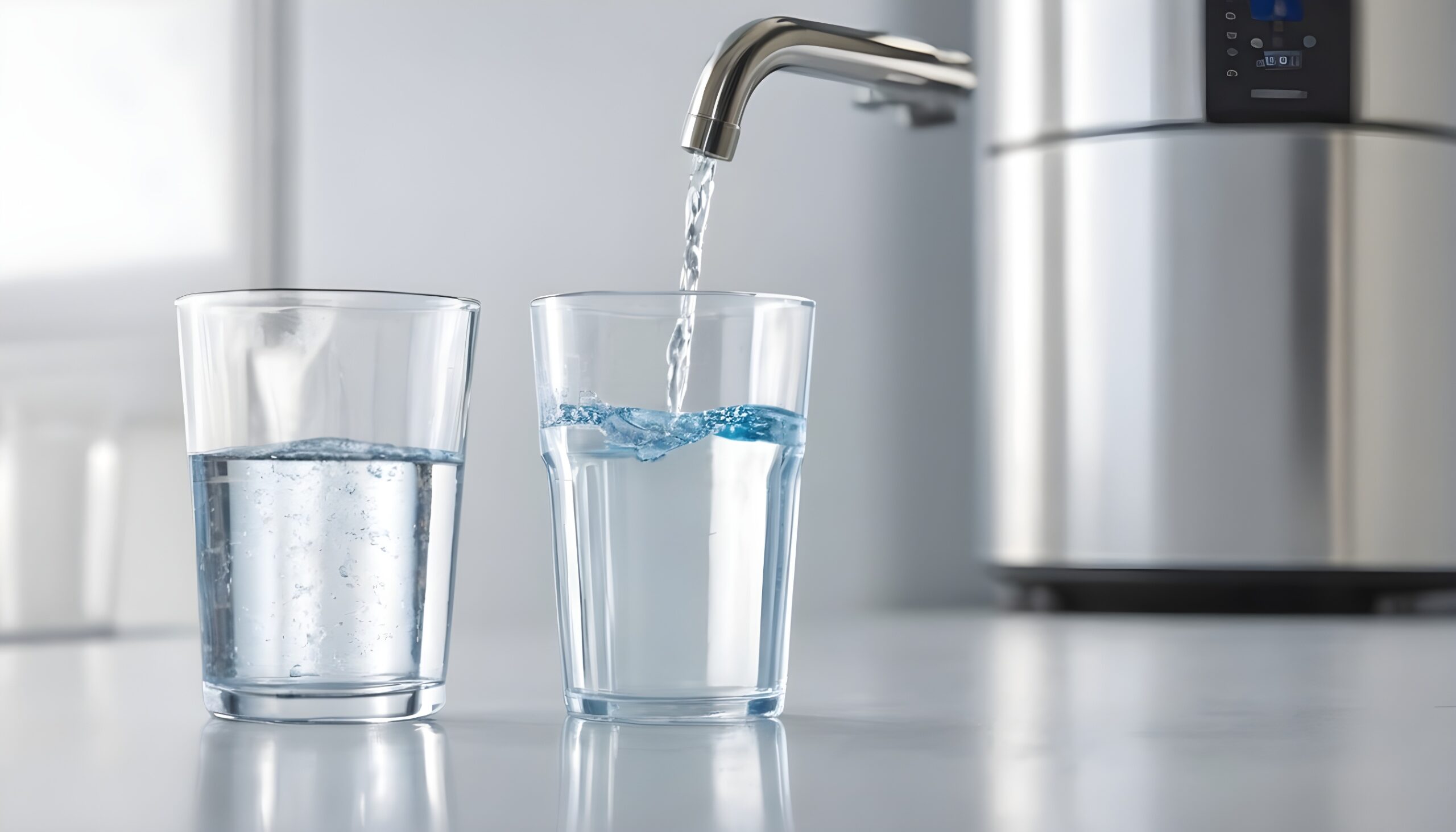Why a Water Purification System is Necessary for every single Home
Why a Water Purification System is Necessary for every single Home
Blog Article
Why a Water Purification System Is Vital for Tidy, Safe Water
Accessibility to clean, risk-free water is a fundamental human right and a foundation of public health. A water purification system stands as an essential option to alleviate these dangers, making sure that people and communities can access risk-free drinking water.
Significance of Tidy Water
Access to tidy water is a basic requirement for human wellness and well-being. It is vital for maintaining life, sustaining hygiene, and maintaining overall public health and wellness. Water Purification System. The schedule of secure drinking water dramatically reduces the risk of waterborne diseases, which posture a considerable hazard to areas worldwide. Polluted water can result in severe health concerns, consisting of intestinal diseases, cholera, and dysentery, specifically in prone populations such as children and the senior.
Moreover, clean water is vital for hygiene and health methods, which are important in protecting against the spread of transmittable illness. Adequate water supply supports correct hygiene centers, promoting a healthier environment. Furthermore, access to secure water influences socioeconomic elements, as it makes it possible for neighborhoods to take part in commercial and agricultural tasks, eventually adding to financial growth.
In lots of areas, the lack of clean water exacerbates poverty and inequality, further hindering development toward sustainable development objectives. Making sure accessibility to tidy water is not only a public health and wellness vital but additionally a keystone for social equity and economic growth. Efforts to improve water high quality and infrastructure have far-reaching advantages, promoting healthier areas and improving top quality of life.

Typical Pollutants in Water
Guaranteeing the schedule of clean water is weakened by various impurities that can endanger its security and quality. The existence of virus, such as bacteria, viruses, and parasites, presents significant wellness risks, specifically in areas doing not have appropriate cleanliness. These microorganisms can lead to waterborne conditions, leading to serious health problem or even fatality.
Chemical contaminants additionally provide an important issue. Hefty metals, consisting of arsenic, lead, and mercury, usually go into water products through commercial discharges or corroded pipes. These substances can build up in the body with time, bring about lasting health problems such as neurological damages and developing disorders.
Furthermore, agricultural drainage presents chemicals and plant foods into water systems, which can disrupt environments and adversely influence human wellness. Nitrates, generally located in plant foods, can create severe conditions like methemoglobinemia, especially in babies.
Advantages of Water Filtration Systems
Acknowledging the important demand for secure drinking water, water purification systems offer a myriad of benefits that enhance public health and ecological sustainability. Largely, these systems effectively get rid of harmful impurities, including microorganisms, infections, hefty metals, and chemicals, making sure that the water eaten is cost-free from virus and toxins. This reduction in contaminants considerably lowers the threat of waterborne conditions, advertising general neighborhood health.
Along with health and wellness advantages, water purification systems contribute to ecological sustainability by minimizing reliance on bottled water, which frequently generates too much plastic waste. By utilizing a purification system, households can lower their carbon footprint and add to an extra lasting environment. These systems can boost the preference and smell of water, making it more tasty for everyday intake.

Different Kinds of Filtration Approaches

One usual method is reverse osmosis, which makes use of a semi-permeable membrane layer to separate water from liquified solids and contaminants. This procedure efficiently reduces contaminations, including heavy steels and chemicals. Another extensively used strategy is ultraviolet (UV) sanitation, which uses UV light to counteract infections and bacteria, providing them safe without the use of chemicals.
Activated carbon filtration is another preferred strategy, making use of carbon to adsorb organic substances, chlorine, and unpleasant smells, improving taste and smell top quality. Purification, a process that includes boiling water and condensing the steam, efficiently eliminates minerals and contaminants yet might require more energy compared to various other methods.
Ion exchange is typically utilized to soften water by replacing calcium and magnesium ions with salt or potassium ions. Each method has its benefits and constraints, making it vital to recognize their performances and performance in resolving particular water quality concerns - Water Purification System. Eventually, picking the ideal purification approach is critical for making sure tidy and safe drinking water
Picking the Right System
Selecting a suitable water purification system needs cautious factor to consider of numerous variables, consisting of the specific pollutants existing in the water system, the volume of water required, and the desired filtration technique. It is imperative to conduct a water quality test to identify pollutants such as microorganisms, heavy steels, or chemical toxins. This info will certainly direct you these details in choosing a system that efficiently targets those details pollutants.
Following, examine your house's daily water consumption to figure out the system's capacity. Equipments are readily available in different sizes, from point-of-use filters for drinking water to whole-house devices that detoxify all water entering your home.
Furthermore, consider the filtration method that finest fits your demands. Reverse osmosis is very efficient for eliminating a large range of impurities, while UV purification is exceptional for getting rid of bacteria.
Conclusion
To conclude, the application of water purification systems is crucial for ensuring accessibility to risk-free and clean water. These systems successfully eliminate dangerous contaminants, thus decreasing the risk of waterborne conditions and improving public health and wellness. They add to ecological sustainability by decreasing dependence on bottled water. By comprehending the relevance of tidy water and the advantages of different purification techniques, areas can make enlightened choices to secure their health and wellness and advertise socioeconomic stability.
Identifying the essential requirement for safe alcohol consumption water, water purification systems supply a myriad of benefits that enhance public wellness and environmental sustainability.In enhancement to health benefits, water my blog filtration systems add to environmental sustainability by minimizing reliance on bottled water, which often generates extreme plastic waste. Inevitably, the adoption of water filtration visit this page systems is a positive step towards ensuring clean, safe water for future generations while guarding public health and the atmosphere.
Selecting an appropriate water filtration system requires cautious factor to consider of various aspects, consisting of the certain contaminants present in the water supply, the quantity of water required, and the wanted purification approach.In verdict, the implementation of water purification systems is vital for guaranteeing access to tidy and risk-free water.
Report this page